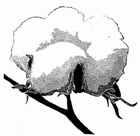No More Tariffs!
Like I said Thursday, I'll believe it when I see it:
Sounds pretty good, huh? Read on...Historic trade deal gets cool reception
By Mike
SeccombeAugust 2, 2004
Page Tools
to a friend
A
breakthrough in world trade talks has set the scene for the removal of hundreds
of billions of dollars of trade-limiting subsidies, but Australian farmers fear
it will do little to improve their access to protected markets.
After five
days of negotiation, the World Trade Organisation's 147 member states formally
agreed to a deal that could spur trade and help lift more than half a billion
people out of poverty, according to the World Bank.
Developed countries spend
about $A515 billion a year to prop up their farmers through domestic subsidies,
export subsidies and other forms of protection. The potential benefits to
Australia in the WTO move dwarf those of the controversial US-Australia free
trade deal, which will dominate Parliament this week - and which Labor is
expected to decide to support tomorrow.
But wait, there's more:However, Australian farmers and the Opposition remain
concerned about a "let-out" clause in the WTO agreement, which would allow
countries to nominate "sensitive" sectors which they could continue to protect
through tariffs. Japan could still declare rice as sensitive, and the US could
do the same with sugar, said the Opposition trade spokesman, Stephen
Conroy.
The president of the National Farmers' Federation, Peter Corish,
pronounced the group "extremely disappointed" and he feared countries could
still "shield themselves from offering real and meaningful access".
[...],Senator Conroy said the agreement was deficient because
"there's no definition as to when the export subsidies will be phased out.
There's no date. There's no rounded definition on how we will reduce tariffs,
and then they have the let-out clause which Australia in particular will be
damaged by."
Pointy heads have differing opinions on the subject:
Economist Andy Stoekel, a supporter of the trade deal
with the US, said the removal of export subsidies was "only one-tenth of the
problem" and "the real issue is what are they doing about removing barriers at
the border, removing tariffs or expanding quotas, giving access for products
into another country's markets."
However, Professor Peter Drysdale, of the
Asia Pacific School of Economics and Government at the Australian National
University, said:
"It's certainly far more significant than these trivial,
potentially-dangerous, adverse precedent-setting FTAs [such as that between
Australia and the US] of the past few years."
ANU economist Professor Ross
Garnaut agreed: "The dollars from this for Australian agriculture make any
possible FTA gains look tiny."
I can't make my mind up on the FTA, I was kinda thinking we were going to gain more than we lose, but the way it passed through congress made me suspicious. Every American person I've ever met, even those I didn't like, has been generous to a fault. This is a fault which hasn't been inflicted on the congress. It seems the ALP is in the same boat:
It is widely expected Labor will agree to the FTA deal. A special caucus meeting has been called for tomorrow, at which Labor's position will be finalised, and should be announced before Parliament convenes at
2pm.
The US trade agreement has split Labor. Most premiers and about half the
federal front bench support it, while large parts of the union movement, the
other half of the front bench and the party's left wing oppose it.
It will pass, no doubt about that, but it's good to see that Johnny's getting the vapours about something for a change. Carrying on about "This is the future of the nation we're talking about" only strengthens Marky-Marks position; surely something so vital should be researched thoroughly before you make a decision on it.




0 Comments:
Post a Comment
<< Home